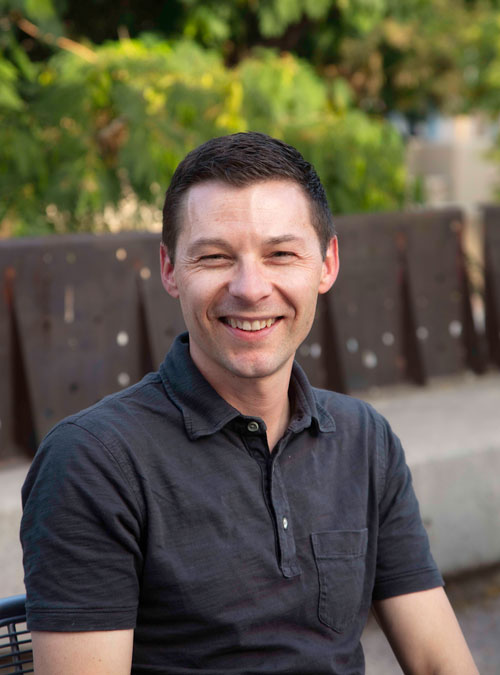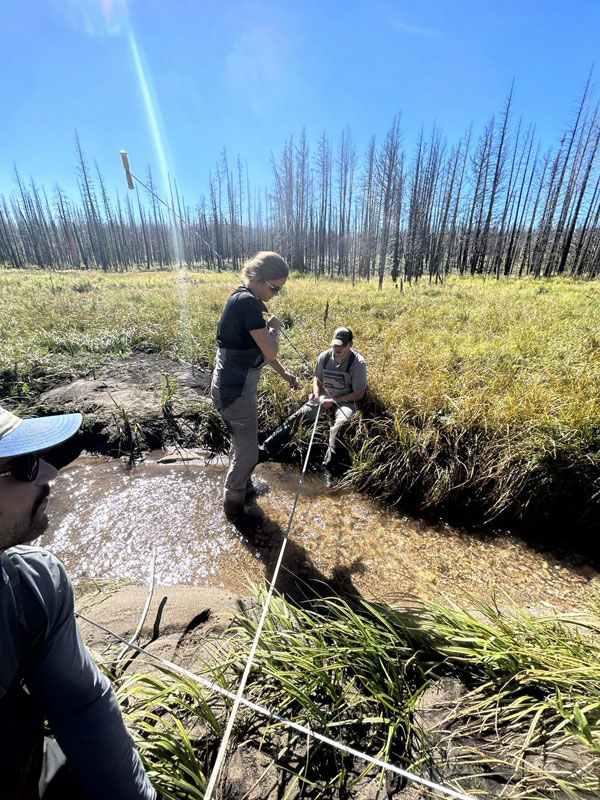January 18, 2024
By Esther Hewitt, Transformation Network Communication Intern, The University of New Mexico
Ryan Morrison is an Institutional Lead for the Transformation Network (TN) and an Associate Professor in the Department of Civil and Environmental Engineering at Colorado State University. He is one of several TN faculty members on sabbatical this spring. A sabbatical is a perk that comes with a faculty job, allowing an absence to encourage professional growth and increased competence by subsidizing significant research, creative work, or some other program of study that is considered equivalent. It benefits the university through the faculty members because it gives them time to pursue an interest that may result in new course offerings or qualifications and skills that could contribute to the academic interests of the university. Ryan recently took the time to answer some questions about what this sabbatical means for him.
What goals do you have for your sabbatical?
I have three main things I want to focus on. The first is working on course development to increase opportunities for students to learn about river restoration and river science by offering an online option. This will create opportunities outside of costly in-person coursework. The second area of focus is to take inventory of my work, what I want to do in the future, and how to spend the next five years. This will involve networking and traveling to conferences in Europe and Canada. The final piece is to spend time with my family and in personal reflection. I will be released from my service commitments and teaching, but I will continue to oversee the research projects that I am a part of.
Could you tell us a little about your research with the TN?
We are working with the Coalition for the Poudre River Watershed (CPRW) on post-wildfire restoration and building resilience in the rivers. We have eight wonderful graduate students who have spent over sixty days in the field conducting research that studies how the rivers are affected by wildfires and human-based influences and the work being done to restore stream habitat using process-based restoration.
What is process-based restoration?
It promotes natural processes so the river heals on its own, such as placing large wood in the river, mimicking historical beaver dams. This introduces channel complexity and slows the flow of the water, which helps sediment to be held in the river rather than flowing downstream. We are working to quantify and learn from these processes so we can help guide future river restoration. One exciting new relationship that builds off this work is a potential partnership with Trout Unlimited, who has approached us to assist in guiding their efforts in freshwater conservation and river restoration in Colorado.
Learn more about Ryan and his research by visiting his website. We are proud to have Ryan as member of the TN team and look forward to hearing about what he accomplishes during his sabbatical!

Ryan Morrison is an Associate Professor in the Department of Civil and Environmental Engineering at Colorado State University and a TN-funded faculty member. He is on sabbatical for the spring of 2024. (Photo by Esther Hewitt)

Ryan Morrison’s students collecting field data on a small headwater stream affected by wildfire in Colorado. Brady Jones, a TN-funded student at Colorado State University, is sitting on the bank of the stream.